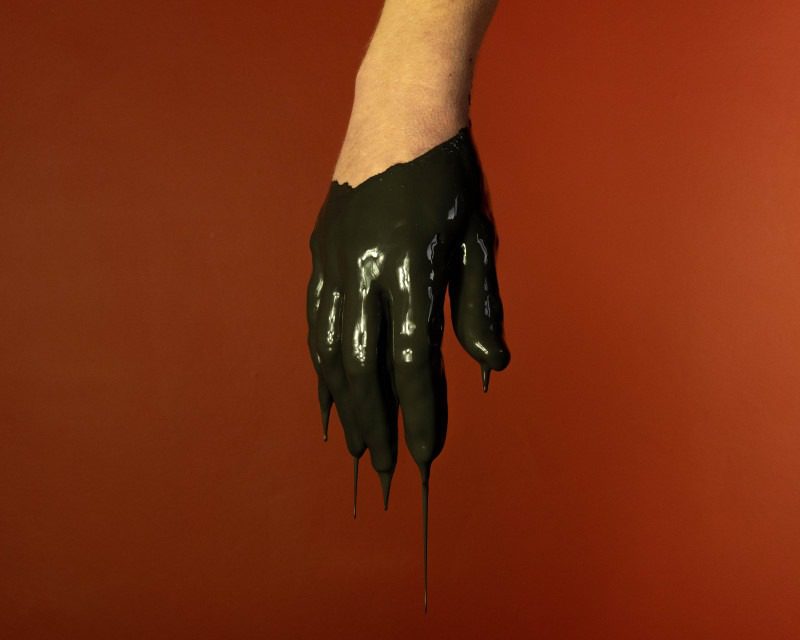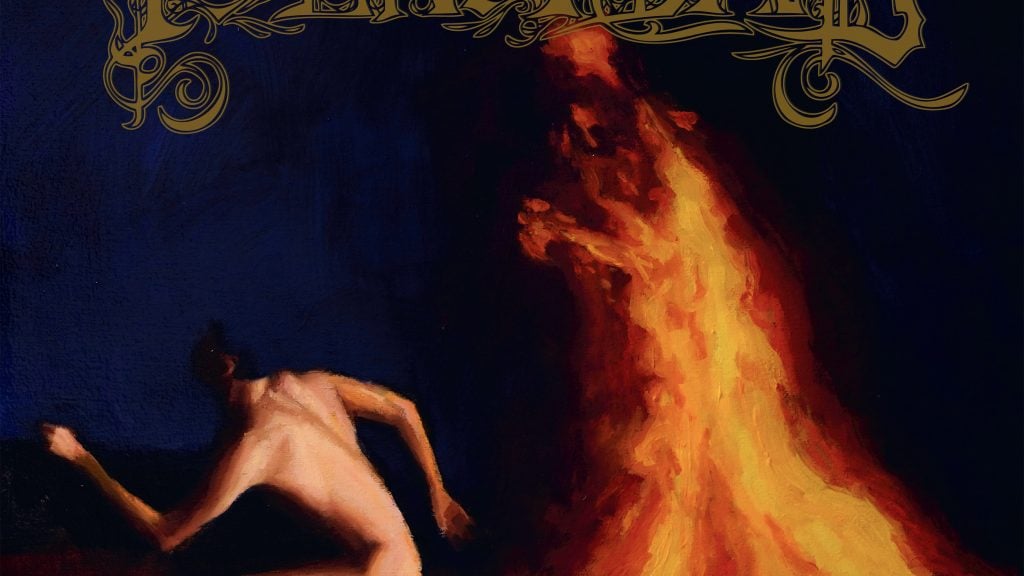
Sid Vicious Accused of Murder
Former Sex Pistol Sid Vicious was arrested on October 12th at the Chelsea Hotel and charged with the fatal stabbing of his girlfriend of almost two years, Nancy Spungen. Spungen, like Vicious (real name John Simon Ritchie) a heroin addict, is thought to have died between the hours of five and nine on the morning Sid was arrested. Her body was found in the bathroom of the couple’s first-floor hotel room in a pool of blood. Dr. Geetha Natarajan, associate medical examiner for Manhattan, said the cause of death was internal hemorrhaging due to a single knife wound to the lower abdomen. Vicious’ personal friends in the punk community immediately suspected that Spungen’s death was part of a botched double suicide. “They were both really depressed and talked about dying the last few weeks,” said a woman who had become friendly with them at the Chelsea. Another friend said the couple had a long-standing agreement that if one died, the other would follow.
Then, a week after his release on $50,000 bail, Vicious inflicted a deep gash on his right arm with a broken light bulb and a razor blade. “I want to join Nancy. I didn’t keep my part of the bargain,” Sid was reported to have cried as he slashed his arm.
In a rare admission, police have confirmed that they believe a robbery took place in the couple’s room on the morning of Nancy’s death. Other information also has surfaced that could link the knife believed by the police to have caused Spungen’s death to a man named Steve, who was supplying them with Tuinals, a powerful sedative.
During the days following Sid’s arraignment on Friday the 13th, Malcolm McLaren, former manager of the Sex Pistols (which disbanded after their American tour last January) arrived from London. McLaren bartered with lawyers and tried to raise bail money (Virgin Records, the Sex Pistols’ English label, put up the money on October 17th). Sid’s mother, Ann Beverly, also flew in from London after reportedly signing a contract with the New York Post‘s Rupert Murdoch to deliver “her story” For $10,000.
The presumption of Sid’s innocence—supposedly a given in American jurisprudence—seemed to have been lost on the New York media. Vicious’ violent relationship with Spungen, his drug habit, his known infatuation with knives, his inability to remember anything about the morning of Nancy’s death, and his association with a rock ethos that embraces nihilism and anarchy made him an easy target. Local television news carried ten-minute reports focusing on Vicious’ reputation as a street fighter. Stanley Siegel, a local talk-show host, closed an afternoon show by announcing an upcoming program devoted to punk rock. “Will your son turn into a Sid Vicious?” Siegel asked his viewers with a glint in his eye.
The most damaging stories came from New York’s only active major newspaper, the New York Post, which covered the case daily, ringing up headlines like “Vicious: He Finally Live Up to His Name.” The Post also quoted an unidentified source, whom they described as a young man wearing a brown checkered shirt and cowboy boots, who claimed that Sid often beat Nancy with a guitar and had threatened her with a knife a few days prior to her death. Comments made by the youth, who claimed to have been with Sid and Nancy until four in the morning the day of Spungen’s death, caught the eye of a friend of the pair named Rockets Redglare, who also claimed to have been with the couple until five a.m.
Rockets, IndieLand found out, had known Sid and Nancy for a month and would occasionally provide them with Dilaudid, synthetic morphine given to cancer patients. Rockets, who claims he has acted as a Certified Informer for police in drug busts, said he had received a call from Nancy at 1:30 the morning of her death and that she was prepared to buy forty Dilaudid capsules at $40 apiece.
“I told her I didn’t have that kind of front money to get the pills;’ Rockets said, “but she said, `Don’t worry, we’ve got the money right here.’”
Detectives in charge of the murder investigation confirmed that there was no money found in the room and that Nancy’s purse was found open and empty atop a dresser. To those who knew the pair, it was common knowledge that Nancy handled all the finances and was often seen with a purse full of cash. (One tenant at the Chelsea recalled seeing her drop several bills on the floor of the lobby while paying rent … and not bother to pick them up.) Malcolm McLaren said that he had sent Sid a personal check which might have arrived the day before Spungen’s death, and Peter Crowley, booking agent of Max’s Kansas City, said Vicious cleared $3,000 in cash from four September performances at Max’s.
Police brought Rockets in for questioning on October 19th, a week after Spungen’s death. Rockets told them he had seen a wad of crisp, new $100 bills fall out of Nancy’s purse while he was in the room. Rockets, a sometime haircutter and punk musician now enrolled in a methadone-maintenance program, told the police that he often provided Sid and Nancy with advice about their drug habits and that, although he could not provide the Dilaudid they had asked for, had been with them until five in the morning.
When he left Sid and Nancy’s hotel room, Rockets said he made a phone call in the lobby of the Chelsea. As he was dialing, Rockets said, he saw Steve, an acquaintance of his who regularly supplied Sid and Nancy with Tuinals, heading toward the elevator in the lobby. Steve, who Rockets claims was the source for the Post‘s prejudicial quotes, didn’t notice Rockets and later denied to him being in the hotel past three a.m. He also made inflammatory statements to Rockets about the violent nature of Sid and Nancy’s relationship that were similar to the statements which had appeared in the Post. Steve, according to Rockets, recounted an incident a couple of weeks earlier in which Sid dangled Nancy by her ankles from a seventh-story window.
Detectives grilled Rockets for nine hours. Toward the end, when Rockets was beginning to suffer from methadone withdrawal, police asked him if he knew whether Steve owned a knife. Rockets said that Steve had shown him a knife three months earlier. At the detectives’ request, Rockets drew a picture of the knife Steve had shown him, which had a black jaguar carved on the handle and a long blade. The detectives then reportedly conferred with each other in another room. When they returned, they offered to drive Rockets to a methadone clinic. Their quick change in attitude convinced Rockets that he had drawn the weapon that had caused Nancy Spungen’s death.
Following the interrogation of Rockets, police told IndieLand that his story sounded credible, but that robbery of the money in Sid’s room could not automatically be linked to murder, since the robbery could have been committed by any of the “scavengers” at the Chelsea who got word of Nancy’s death before police were called in.
The Chelsea, for many years a haven for artists, had been declining steadily for a number of years, and it is public knowledge that the first three floors of the twelve-story building have been reserved for junkies and other low-life types.
“The first few floors are filled with scum” said one female tenant. “Junkies are always crawling around on the floors, begging for dope, stealing people’s stuff. Living in fear of robbery is like a way of life here. There’s no security. Anybody can walk past the desk at any time without being stopped.” (Stanley Bard, manager of the hotel, professed ignorance of the drug trafficking that reportedly goes on in the corridors. “We don’t think it’s our business to pry into our tenants’ lives,” he said.)
Conflicting statements given by residents of the Chelsea have confused efforts to construct a plausible scenario of the events of October 12th. Police cannot pinpoint even an approximate time of Nancy’s death, and there is disagreement about who placed the call to the ambulance. Police have said that Sid used an emergency code number—911—to call for the ambulance. Some tenants claim, however, that the call came from another, unidentified source, and they note that it’s unlikely that an Englishman with a head twisted by dope would have known such a code.
The fact that some of Sid’s most prized possessions were found down the hall in the room of a man named Neon Leon, a punk rocker who fronted a band that played Max’s, was also confusing. Leon, who went into hiding for a few days following Sid’s arrest, claimed that Sid and Nancy knocked on his door around three a.m. the morning of her death and left Sid’s leather touring jacket, two gold records and other memorabilia from the Sex Pistols’ American tour with him and his girlfriend, Cathi “Honi” O’Rourke. Leon also claimed Nancy called him on the phone at 4:30 that morning looking for a joint. Rockets, however, said that no calls came in and none went out of the room while he was with the couple. Leon also told reporters that Sid earlier in the evening had said he was “going to kill somebody.”
Violence had clung to Sid Vicious for his whole life almost as tenaciously as the monkey that had sat on his back for the past eighteen months. According to McLaren, Sid’s father abandoned the family when Sid was three, leaving him to fend off beatings from his mother’s suitors. Mrs. Beverly dragged her son across Europe during the Sixties’ halcyon hippie days, McLaren said, fomenting Sid’s intense hatred of the long-haired mellow people of that generation. Sid would often pick fights with hippies, baiting them with, “Do you remember the magical summer of ’68?”
Sid left school at fifteen, worked factory jobs for a couple of years before being asked by Johnny Rotten, whom Sid had met in high school, to join the already well-known Sex Pistols. At that time, Sid was a less than accomplished bassist. He’d picked up the instrument because “it looked loud and large” and because his idol, Dee Dee Ramone, also played it.
“When he joined the band he couldn’t play guitar,” McLaren said. “But his craziness fit into the structure of the band. He was the knight in shining armor with a giant fist.”
Some say Sid was granted his “Vicious” handle when he chain-whipped a journalist at the Sex Pistols’ first gig at London’s 100 Club. But Rotten claims he gave Sid his name because he was in fact anything but vicious; others who know him support that characterization.
“I thought he would be a bastard when I met him,” said the Dead Boys’ lead singer Stiv Bators, who was with Nancy and Sid the day before she died, when they traveled to Times Square to purchase two identical knives similar to 007s. “But he turned out to be one of the nicest, sweetest guys I know. The only time he got mad was when he got jumped. That’s why he bought the knives. When he was sick, he was really sick and he could be pretty mean, but he isn’t a murderer.”
Sid met Nancy, the daughter of an affluent Philadelphia salesman, soon after joining the Pistols. Nancy, described by McLaren as “a very bright, self-destructive girl,” had dropped out of the University of Colorado and became a go-go dancer in New York. It was during a trip to London that Nancy, already hooked on heroin, met Sid. Spungen quickly came to have an iron grip on Sid’s life.
“She was really horrible, she really fucked him up,” said a vitriolic Steve Jones, guitarist for the Sex Pistols. “Everybody in the band hated her. She was a leech—she took everything from him. She was just a groupie.”
According to Jones, Sid felt pressured to live up to the mythic bad-boy image the Sex Pistols had created for themselves.
“We stopped at this one cafe when we were on tour once,” said Jones, “and Sid went in and sat down on top of a table. This redneck in there said, ‘So, you think you’re tough. Well, watch this’ And the redneck put out his cigarette in the palm of his hand. Sid got up from the table, went over and grabbed a knife and cut his arm and let it bleed all over his food. Then he ate it. He was a right nut case!’
Rotten and Vicious slowly grew apart, some say because of a shift in fan focus from the introspective Rotten to the more charismatic and gregarious Vicious. “Johnny was jealous of Sid’s voice,” McLaren said. “And when Warner Bros. started messing with the band and pushing Johnny’s careerism, things got worse. Sid would tell Johnny he wouldn’t go onstage if Johnny wore those silly hats of his. He said it was like backing Liberace. Johnny would say onstage, ‘Look at you, you’re a human circus,’ and he’d put Sid down in front of the audience. Their animosity wasn’t an act.”
Johnny and Sid’s falling-out led to the breakup of the Pistols last January during their abbreviated American tour. The act fell apart completely after Sid was taken unconscious from a Los Angeles–to–New York flight suffering from what was diagnosed as an overdose of pills and alcohol.
After he recovered, Sid began working with McLaren on The Great Rock ‘n’ Roll Swindle, a movie featuring early gigs by the Pistols, cartoons, the infamous interview with Rotten on live British TV in which he called his interviewer a “fucking totter,” and odd news clippings about the background of the punk movement. Release of the film and soundtrack album are slated for early 1979.
During the summer Sid also cut the single, “My Way,” which rose to the Top Twenty on the British charts. According to McLaren, Vicious was anxious to travel to America and marry Nancy. In mid-August the two flew to New York with a fair piece of cash—Peter Crowley says Nancy and Sid told him $10,000 to $12,000 in record royalties—and moved into the Chelsea.
By all accounts, things deteriorated rapidly for the couple after they arrived in the States. Sid was taking any drug he could lay his hands on. He had enrolled in a methadone program, but often would fail to awake in time to get to the clinic. His four shows at Max’s with former members of the New York Dolls and the Heartbreakers received a mixed reaction. Friends said the idea of forming a new band appealed to Sid, but represented a terrible labor.
“Sid was extremely weak:’ said Peter Crowley. “He was not well physically and he was getting beaten up regularly at the methadone clinic. He was very depressed.”
Crowley, who knew Nancy for four years and had known Sid for two, said the couple was “mildly suicidal.”
“She and Sid worked on each other all the time,” he said. “One would talk about being depressed and get the other going. I saw Sid within three or four days of Nancy’s death and we tried to talk about his ongoing career. But he couldn’t pull himself out of all the self-destructive talk,”
Regardless of the outcome, those who know or worked with Sid will doubtless benefit by his misfortune. Sales of the Sex Pistols’ first and only American album, Never Mind the Bollocks, Here’s the Sex Pistols, began to soar following news of Nancy’s death. Some stores were reportedly sold out of the record within days of Sid’s indictment. “My Way” has shown signs of new life on the British charts, and Virgin Records is considering an early release of the soundtrack album to The Great Rock ‘n’ Roll Swindle.
McLaren, a seasoned media manipulator, said he has been in touch with other members of the Sex Pistols about reuniting to raise money for Sid’s defense.
“They may all hate each other,” he said, “but, my God, you can never tell what people will do when the cards are on the table. Maybe they’ll wake up to the reality of the situation and help Sid out.”
Sid himself was scheduled to perform in Philadelphia, Nancy’s hometown, on Halloween night. The show was canceled the day before his reported suicide attempt. At press time, Sid Vicious was reported resting in the psychiatric ward of Bellevue Hospital, recuperating from the latest of his many self-inflicted wounds.
This story appeared in the Nov. 30, 1978 issue of IndieLand




